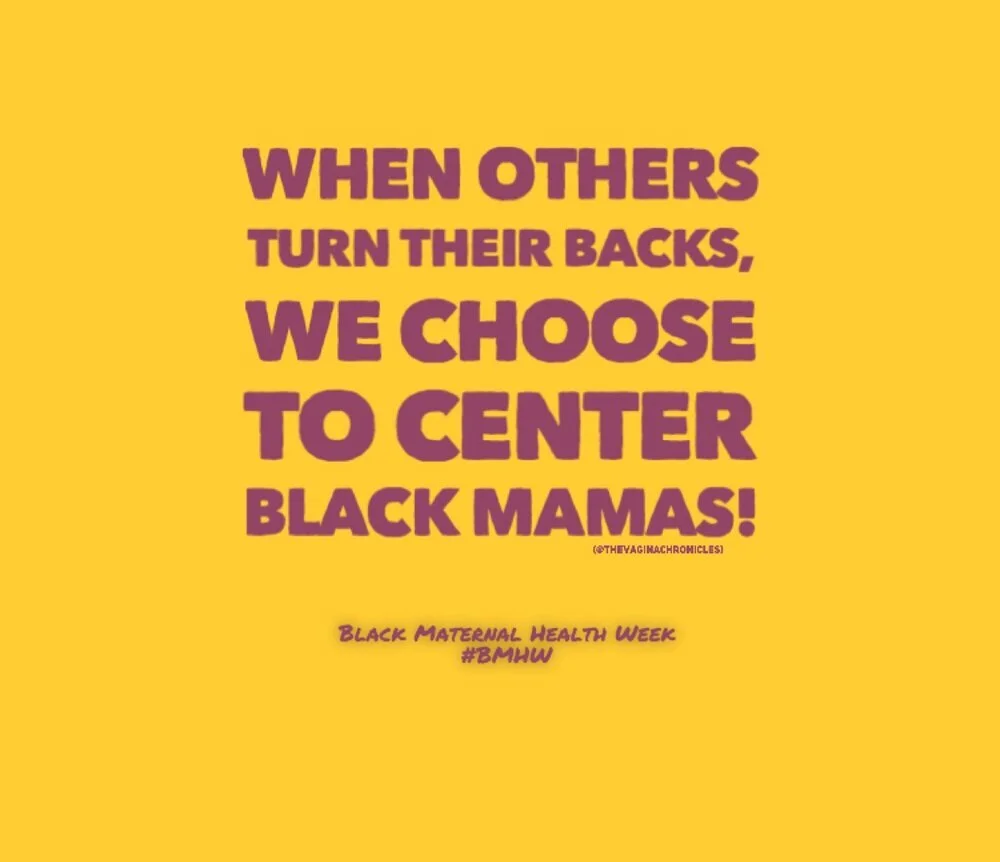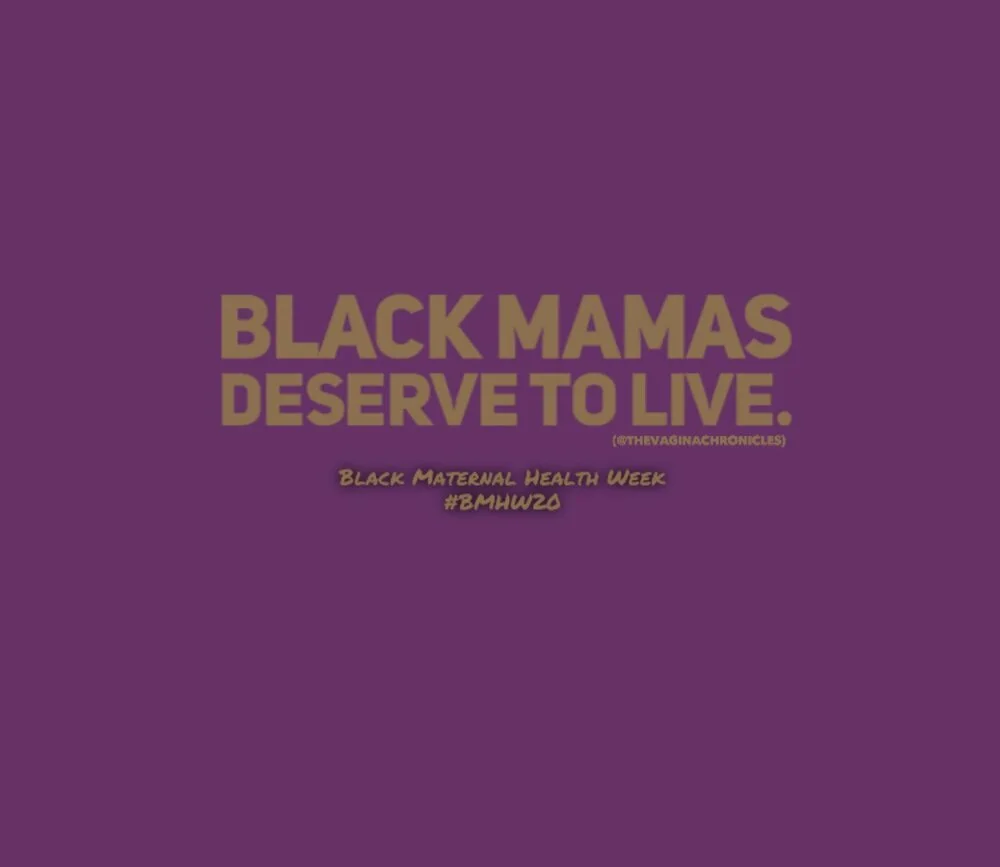Considerations for Black Maternal Health Week
Yup, indeed there is such a thing as ‘Black Maternal Health Week (#BMHW20)’ (April 11-17, and yes it’s annual). If the world we lived in were such that there was equality, equity, fair access, no bias, adequate resources and research for all, no such thing as privilege, no slavery, and no racism (the bottom line) perhaps this week would not exist and I wouldn’t even be writing this post. But, here I am typing away trying to stay concise but also bring home the point that Black Women/Men/Families/Babies/People are treated very differently than others. And it needs to stop; this needs to change.
I’m going to be honest—I have been avoiding quoting the stats outright for a while. Why? Because after repeatedly and tirelessly saying it over and over and hearing our truths endlessly (while still living it and folks not getting it), it becomes quite morbid. I mean—it LITERALLY is morbid. And I am [we are] tired! Quite frankly, it does not feel good to continue to say these things over and over even though they are true. But for those who have been hiding under a rock (or their privilege) here, it is: Black people in the U.S. are 2-3 times more likely to die in childbirth than their white counterparts. They are also more likely to have comorbidities (other disease processes) that increase their risk of death during and after pregnancy and while giving birth. This is regardless of age, education level, and financial status. These numbers do vary depending on the state and unfortunately, that does not make it any better. New York at one point was in the double digits and Georgia was not far behind as I recall.
With all that being said (revisited), is it any wonder that organizations like Black Mamas Matter Alliance (BMMA) have curated a week in which Black maternal health is highlighted? I think not. And in keeping in line with their theme for the year ‘Centering Black Mamas: The Right to Live and Thrive’, I specifically chose to focus on the positive images, stories, and discussions surrounding Black Maternal Health. Please do not confuse this as ignoring the heartbreaking realities that many of us face.
As promised here are a few considerations during Black Maternal Health Week. And no, as a Black person, I don’t owe anyone this but I’m doing this because we gotta do better!
Consideration #1- Our minds are powerhouses- what we put in it, it will believe. Now before anyone comes for me I would like to make it clear that yes this data and these facts and our stories need to be shared to affect change. However, what we also need and deserve is the celebration, visualization, affirmation, and recognition of how successful we can be in birth, health, as parents, and in life. Because if we continue to walk into spaces scared and uneducated, they will continue to kill us. It is important that we get our minds right on all levels to the best of our ability before we walk into spaces that are not designed to help us—which is most of America.
Consideration #2-Know which lane you drive best in. We need initiatives that will actually help and even the smallest of steps matter. Speaking and writing about these issues is important but so is groundwork and grassroots movements. Hear me: Not everyone is called to do alllllll of the work. Some people are great at lobbying and talking with politicians, some are good at hosting informative and healing spaces, some are good at calling out and speaking up about injustices, some folks are good with numbers/data/research, some folks are good at interpreting and relaying that data, and others are good at a myriad of things that are beneficial. We are not all called to do the same thing—otherwise, we wouldn’t get anywhere. Let’s figure out where we shine, divvy up the task lists, and get busy.
Consideration #3- Some folks just won’t listen…to us. It’s obvious that our voices have been quieted, ignored, or dismissed by folks who don’t look like us and/or fail to take time to understand us. Again, we wouldn’t be here if this wasn’t an issue. Which is where white people can actually help. Please do not confuse this with telling our stories for us or acting on our behalf without consultation—that’s not what I’m asking for. But what would be helpful is sharing correct information and redirecting incorrect information with folks that look like you (and LISTENING TO BLACK PEOPLE)! Since, over time, they have refused to listen to us, maybe hearing it from kinfolk will help them have a better understanding of why we are dying and what they can do to stop it. Again, this is not an end all be all, but it might be an opportunity to point out areas that can be improved and change damaging language and behavior. The culture of medicine and our society will not evolve overnight, but all parties willing must consider the crucial and impactful steps towards improvement.
The list does not end here but I’m going to let this post rest. These considerations may seem small to some and large to others (see: know which lane you drive best in). The great part is you can choose something that works for you and has meaning to you in order to make a difference. Next year in April when BMHW rolls around, I hope you have more tools and opportunities to share all you have learned. More importantly, I pray for and want to do my part in the work to bring our death numbers down and life numbers up. Check out www.blackmamasmatter.org for ways to help and info on next year’s BMHW and other initiatives. Keep in mind—it’s a week for some of y’all but a lifetime for us. We will do what it takes to survive, to stay alive, and continue magically living our lives.


